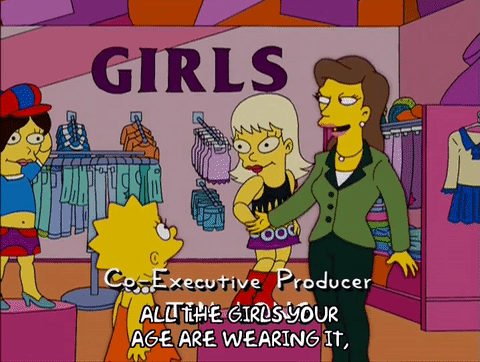Secret Lives of Sex Worker Friends
1. Everyone Judges; Try Empathy Instead (Intro)
Everyone judges. I try not to be too judgmental. I’m hip, tolerant, and, by most standards, progressive. I’ve been fortunate to date with ease after some awkward teen years. Unlike most, I had parents who supported me financially when I needed help with rent. I was driven to some taboo experimentation, like dying my hair, but never to sex work (or opiates, piercings, tattoos and other obsessions). The stories I share below are simply anecdotes from friends who engaged in various forms of sex work for different periods of time. It is happenstance that I have so many stories to tell. Most of these friends came from the dating or rave community. I have omitted details to avoid doxing.
Among my ex-sex worker friends, few lasted more than a year, and, spoiler, all have regrets. This isn’t to say sex work never works out as a lifelong career or that their intent was to make it a career. Rather, I’m sharing these anecdotes to highlight the inherent dangers. I want to offer the warnings my friends didn’t get or didn’t heed. Naivety is all too common among teens and young professionals. Maybe we should yuck some yums.
I also want to explore the spectrum of thoughts surrounding sex work. Some friends believed online work would be more discreet than offline, and vice versa. Some thought private sessions were more discreet than dancing, and vice versa. Many believed they could maintain strict boundaries. Let’s just say, everybody’s gotta learn sometime.
This essay isn’t just about my friends’ experiences; I also hope to shock and educate.
Perspectives on sex work vary widely. The commodification of sex is considered taboo, if not outright predatory. It’s regulated or banned. Progressives might see self-employed escorts as feminist heroes, distinct from lowly prostitutes under a pimp. However, when pressed on how these individuals can self-protect, delusions surface. Similarly, when discussing their clientele, derogatory terms (like ‘gross pigs’) arise, despite buyers being necessary for the industry to exist. Conversely, conservatives who champion wholesome family values are typically the very ones frequenting strip clubs. They’re often avoiding their first wife or looking for their third.
I initially attempted to categorize these anecdotes by types of sex work: camming (selling photos and videos), fetish sales (selling underwear and other items), topless stripping, fully nude stripping, independent escorting, contracted or call service escorting and, worst of all, “other.” However, these experiences are not easily compartmentalized. Someone who sold feet pics might eventually sell used socks. After edits, my storytelling is more chronological but not strictly so, covering events from high school to my mid-30s.
Disclaimer: My intent is not to shame anyone. I respect all the individuals mentioned. No real names are used, and, again, I’ve omitted most details to protect privacy. Don’t attempt to ID anyone—everyone deserves their privacy. People enter sex work for various reasons, and it’s not a reflection of their intelligence, ethics, or financial situation. You might be surprised who among you is involved in these jobs. And while I find these trades (and feet in general) gross, again, I’m avoiding judgement to either the buyers or sellers in this industry, while being honest.
2. Whoops. That Happened.
Two years before I started high school, there was an infamous incident involving the biggest school fight in the state. It started in a men’s bathroom, where male students lined up at lunchtime to receive oral favors for $5 or $10 from a desperate Haitian girl. An argument over who was next escalated into a massive brawl involving over 50 students. It ended with a teacher being permanently paralyzed. The school was forced to relocate to a more secure facility.
During my high school years, scandals were common. While none reached national headlines, they were all too real. You may consider these friends lucky or unlucky, depending on perspective. I’ll keep each short because they’re deeply personal and involve minors.
A teacher had an affair with a student. I covered this story in detail elsewhere, so I won’t repeat it here. Yes, that’s not sex work. But she later moved to Alaska and became a stripper. Her story serves as a cautionary tale: sleeping with students can derail an education career. Or maybe the moral is that it can upstart a dancing career, since men pay for steamy backstories. Either way, similar stories seem to pop up each year in the US. They’re no longer surprising.
A 16 year old filmed herself engaging in explicit acts with markers. That’s the polite way of saying she stuck them in her cooter. The video spread throughout the school, forcing her to transfer. The poor girl (figuratively; her family was loaded) was forced to change to a private school, where eventually the scandal followed her. Despite changing schools, the scandal followed her. Years later, she ventured into (clothed) cosplay fetishism. Her story reinforced the lesson that sharing explicit content rarely ends well, especially if it’s to a high school crush. And yet, the majority who heard the story learned nothing. So over the years, again, similar stories popped up. Increased hacking and Snapchat did not help. Kids, don’t rely on pinky promises.
A male student pursued a career in porn after graduating. His friends didn’t believe it was possible. He moved to a porn capital and managed to stay in the industry for at least a year, or so I was told. I never met that guy. But I was reminded about the story many years later when a video resurfaced of him and his friend trying porn out… together. I knew “the friend.” Interestingly, the friend had become a world famous YouTube prankster, making the sort of content I despise: callous jokes at others’ expense. He may be the only one you can ID, but, I’d guess neither the pornstar or prankster ever felt shame for their stint in adult videos. After being doxxed, the prankster’s content became more dirty. He brought in more half naked women for his content. I’m sure the children watching did not mind. If there is a moral here, and I don’t think there is, it’s that comedy pays much better than porn.
Depending on your background, you might find these stories shocking or mundane. The reactions tend to vary between “That’s crazy!” and “That’s nothing! At my school…” My post-high school experiences became more personal but less dramatic. This is where my friends’ accidents and experiments turned into short-lived careers.
Picture this
3. Dancing Queens: From Curiosity to Consequences
From my teens to today, few of my male friends have shown interest in strip clubs. Really. Strip clubs tend to attract those with disposable income, frat boys, bad partners, self-destructive alcoholics, and lonely businessmen. I can hang with such people, but rarely call them friends. My male friends viewed strip clubs as a novelty or no-no rather than a regular hangout.
I’ve known men who love to drop bands. You know, those friends you really only hung out with a few times, who another friend brought along. I saw the stereotype of rich, socially inept men who married a stripper, and failed to turn her into a tradwife. I’d call most of these guys rich losers, and they’d surely call me a poor loser. But there was one who was cool, an ad seller, paid exorbitant amounts. He spent $22,000 at a famous club on his 22nd birthday. He swears most of that money was spent on chicken tenders for his friends! Even with each plate being over $100, it’s hard to imagine. There’s a “table service” world you may not know about.
For whatever reason, many of my female friends, particularly those from low-income black and Cuban communities, loved strip clubs. Yes, believe it or not, there are social circles where the men hate strip clubs and the women love them. I rolled in a few. I heard various explanations from these heterosexual women, mostly working as aestheticians. It was the attention they got, clothed yet still exciting to the men. Or it’s because they got free drinks from the club patrons, especially those who wanted to go after someone without a declared price tag. Or they thought it was fun or progressive. Or they appreciated the artistic side of burlesque and pole dancing. For whatever the reason, my strip club, aka “dancing” stories all involve lady friends dragging me there. Not one story involves a wild bachelor party.
Enter Alyssa, my first stripper friend. She needed a clever way to make money during college. Alyssa had no reason to be ashamed of her body. She was and still is a proud feminist. Things went the way we expected, moving from the front of the house (checking IDs and composure) to dance lessons, drug use, and, eventually, topless dancing. She initially was proud of her work.
I remember the first time Alyssa told me about her ‘dancing’ job. She assured me it was a safe environment, and I assured her I wouldn’t go. Wrong! After dragging me to her club, my concerns began. There were endless stories of daddy issues and baby-daddy issues. The stereotypes of women dancing to pay for school, or to pay for their baby, are very real. Most people do not notice all the nursing school lingo or C-section scars under disorienting lighting.
As Alyssa was a great friend, I became friendly with her work friends. For some illustration, picture me, a short, nerd, trying to catch up with my bustier, topless friends. That’s weird. But it got weirder. For example, these joints have a formal dress code. And, remember, I was the friend reluctantly dragged before a concert or rave, meaning I was outfitted in a tank top or glow-in-the-dark rave attire. Alyssa would have to assure security that I was cool… even though I’m not. The result was a very underdressed, hardly 21 year old me, surrounded mostly by men in suits, wondering how and why I’m there.
I’m comfortable with nudity. I’m all for people breaking out of social norms, even if I prefer to have pockets. I’m happy to see anyone naked one time, if not just out of curiosity. After one time it’s weird. Between that and basic respect, I would try to never stare at my friends’ breasts while they danced. I couldn’t afford what they charged anyways. I kept our relationships platonic AF.
As my eyes darted around, I always noted the same thing: Regular patrons at strip clubs were always looking around, to see who’s watching them. I can’t say why. Were they trying to impress friends and business partners? Trying to make strangers jealous? Maybe they were hoping security and dancers noted their payments, so they wouldn’t get tossed out? Or maybe they’re checking their significant other didn’t walk in? I can only say the vibe is strange. The reason most people don’t notice this phenomena–-patrons looking around at each other–is because they’re all intoxicated. But it’s there. Sure, in the fancier clubs, or specially billed burlesques, a show takes full attention. Sure, there are back rooms with private happenings. But one thing people don’t talk about enough is that in most nude-y clubs, there are men staring at each other.
I’d wager most strip clubs have drugs somewhere. It’s usually discreet: patrons don’t want to get kicked out by security, dancers do it backstage. As a raver, seeing discreet or open drug use is common. If you ever need an anti-drug lesson, meet a drug addicted sex worker. You will run straight to church. I saw some workers get addicted, spending their earnings on drugs. It wasn’t the norm, but, yes, there is a serious concern of dancers at any venue, even so-called classy establishments, being manipulated by way of substance addiction that forces them into a cycle of working and spending. The problems get worse when they’re too addicted to work indoors. While the establishments are filled with uppers, the streets are filled with downers.
Beyond those stereotypes, there’s a wide spectrum of trash and class depending on the club. They are not all the same. A club with free entry will differ from one with $200 cover, as will the dancers, clientele and food. But that price tag doesn’t impact the policies. Some clubs have strict policies, insisting that illegal acts are strictly off limits. Others charge extra. One friend, after years of trying clubs around the country, decided to solely work in a dingy club in BFE, because she trusts their hardcore “no touching” policies. As a veteran of the pole, she valued the respect of the management far beyond getting 20x in tips.
My biggest gripe wasn’t the nudy, outlandish spending, the creepy men, abhorrent behavior from drunk people, apparent drug use, or struggling to keep eye contact with my friends. No. It was the noise levels. Of the few gentlemen’s clubs I’ve been to, the volume was way too loud. Poor quality PAs blast trap and hip-hop music so loud you have to scream into each others’ ears to be heard. Maybe this is intentional: Play music extra loud so people don’t think twice about throwing away money. Or so men have to lean in to say something, then get seduced. Maybe it’s because nobody actually came for small talk. I just remember telling Alyssa and her friends they would have hearing damage.
Today, a decade later, all of these ex-dancer friends do have hearing damage. Few still work as entertainers. Alyssa doesn’t, and in private she would knock the trade outright, especially the sleazy management. Management can always find another naive girl when one grows up. Another friend developed enough muscle from regular pole dancing (and training) to compete in fitness events. Some of the girls found relationships with rich, older, men. In the sadder cases, the effects from topless dancing is akin to war veterans, with PTSD-like symptoms and tinnitus.
My takeaway is that if you ever plan to work as a “dancer,” know you need to be tough, you need to put yourself before management, and protect your ears like you would your genitals. All the funnest parts of your body are sensitive and easily damaged.
Repeat after me: You will not make 6 figs on OnlyFans
4. E-Sex Friends Before OF
Next up, let’s discuss some friends' “camming” stories. I’m using the term loosely for all online work, which may involve financial domination, selling used clothes, chatting online and something I can’t believe men pay for, “dick ratings.” I say men, because to my knowledge no woman has ever paid someone without a medical license to check out their genitals.
With the rise of OnlyFans, approximately 4 million people have turned to camming, with varying degrees of success. OF alleges a median income of $180/month. I can’t give a breakdown of what percent of OF models turn to nudity, and I’m not writing this essay to determine whether underwear pics constitute sex work. I can say, misconceptions about camming run amok.
The story that any girl, or any hot girl, can simply buy a camera and make good money online is ludicrous. The job is far less glamorous or easy. First, each cam-model needs to find their niche. That means someone who’s conventionally hot may not actually find as many subscribers as someone who’s fulfilling a fetish. Second, they need to know how to work the camera and pose. Setting up a tripod with a janky phone won’t do. Some women have friends, significant others, even their own children, take their photos. After all these prereqs, some cam-models spend 10+ hours a day engaging with clients–chatting, marketing, and creating custom content. To meet these high demands, some models turn to managers, automation, AI and outsourcing labor.
Some friends discreetly engaged in camming before OF’s rise, using social media to find clients. They would have to know which social media and messaging apps were popular, moving from one medium to another. However, anonymity is never foolproof. Eventually, a Reddit sub or Discord channel might get scraped, causing uploaded content to resurface elsewhere. My friends wound up damaging relationships no matter how they covered up… their identity.
This is where I’m going to be a broken record: You can not hide your secret life from everyone. It’s not only celebs like Pamela Anderson, Kim Kardashian or Paris Hilton with videos leaking. I’ve had friends who hardly made $20 before being doxxed. Once content is out there, bots can reshare this content. People can work hard to get content off one site, only to find it on another a year later.The battle to erase all your 0s and 1s is uphill. It’s a real “Whack-off-a-mole.”
So why do so many try camming, despite the dangers? They simply sought income. Some friends took extra steps to stay anonymous. Others left their geotag on videos. It didn’t really matter. Hackers couldn’t care less about BS DMCA notices and other precautions. To remain truly anonymous, someone would need to hide all identifying marks, including blemishes, tattoos, piercings, facial features etc., take secure payments only, and keep their secrets from virtually everyone who knows their real name or location. Internet sleuths will still uncover them.
Earlier I wrote, “Some friends believed online work would be more discreet than offline, and vice versa.” I can’t say if your acquaintances are more likely to visit a shady strip club or website, so I would not subscribe to the idea that any sex work is inherently more discreet than another. If you have close friends, they’ll eventually ask where you were yesterday, or where your wad of ones comes from. Keeping secrets anonymous is partially a luck game.
Once someone’s secret is exposed, their reputation is permanently changed. For a friend who dabbled in camming, they might tell their acquaintances that they stopped doing it. That doesn’t guarantee anyone will believe them. Even after scrubbing content, the stigma lingers.
[I couldn’t find a more apt GIF from Viva Ned Vegas]
5. Blurring the Line: Escorting and the Illusion of Discretion
Escorting is the most stigmatized form of sex work. It involves higher risks but often promises greater financial rewards. Many of my friends who engaged in other forms of sex work, like camming or stripping, viewed escorting as fundamentally different from their own experiences. Conversely, friends in this trade thought it was more discreet than other types of sex work. Here I want to focus on how the boundaries between sex work and dating can get blurry.
When I refer to escorting, I mean work involving physical intimacy beyond therapeutic contexts like massage or physical therapy. I never was friends with a streetwalker. These friends worked as call girls, private BDSM services, dancers offering “extras,” and sugar daddy arrangements. What? Did you think girls with sugar daddies are just getting money to do nothing? Grow up.
Contrary to the perception that escorting is a full-time career, most of my friends who explored this trade did so infrequently. For them, it was a rare choice made for quick financial relief or to help a friend meet a specific client request. Motivations varied. Some approached it experimentally, while others had bigger financial aspirations. Half had narcissistic tendencies.
There isn’t a single financial background or family dynamic that consistently leads someone to this path. I’ve known people from both affluent and struggling families, with some maintaining strong familial bonds and others being estranged. In one case, a friend’s mother drove her to meet clients, shortly after her dad became bedridden and the family turned to alternative income streams. Another confided she had sugar daddies because her husband enjoyed the idea of it.
Like any form of sex work, escorting blurs the line between personal relationships and work. Some friends only took clients they were attracted to, making the experience feel more like dating. Some were financially stable without the work, which raised a bigger question: How different is that from a fetish, or even dating? For these women, escorting wasn’t just a financial transaction; it often intersected with personal dynamics in ways that defy easy categorization.
Looking from the outside, the emotional toll of escorting was undeniable for these girls. Yet most would say they have no regrets. Compartmentalizing these experiences often manifested in irritability, social withdrawal, or strained relationships. I had dinner with one friend, for instance, who appeared fine an hour after seeing a client, but after another hour would lash out over minor frustrations, like a spilled drink or a simple question. She ranted endlessly about how she couldn’t keep friends, but had no ability to recognize that her volatility, coupled with narcissism, were contributing factors. Most of these friends became socially isolated—not because of their work, but because of the personality traits and circumstances that drew them to it in the first place. Their social media presence boast 1000s of followers, but IRL they have few friends.
Escorting, like all forms of work, not just sex work, is deeply complex and personal. It can provide financial empowerment, but the long-term emotional and social consequences shouldn’t be underestimated. I’d be curious to learn about the hormonal changes this work causes. For anyone considering this path, it’s important to weigh not just the external risks but also the internal challenges. Society views escorting as categorically different to dating. I’d argue the distinction isn’t as clear-cut as people want to believe. I had a rule of paying $0-$20 on a first date, because my goal was to have fun and find compatibility, not to have sex. But we all have heard endless stories of people who spend $100s on dates, and expect sex in exchange.
Related but diff episode:
”I have three kids and no money. Why can't I have no kids and three money?”
6. The Case for Medicalizing Sex Work
I’ve already shared the key takeaways from my experiences with friends who turned to sex work. There are often severe psychological and physical effects, countering financial benefits. The social stigma is harder to erase than tattoos, and while it’s easy to claim “I don’t judge,” judgment inevitably creeps in when you see repeat patterns. In my final thoughts, I want to discuss how the worst aspects of sex work feel tragically avoidable.
Every job comes with its share of regrets. Servers, salespeople, marketing professionals and virtually all workers are exploited, undervalued, and trapped by societal expectations. In some ways, sex work can offer more autonomy than those professions, especially for those who value independence over fitting into traditional workplace norms. But we have produced a system where sex work necessitates fractured relationships or irreversible reputational damage.
What I didn’t delve into as much earlier are the physical effects. Long hours, physical contact, and disrupted sleep take their toll. My friends who stayed up all night dancing, talking to clients, taking photos, or engaging in physical intimacy would end up with fevers and aches. Afterall, people are gross. Imagine the amount of germs they encountered.
In the good moments, these friends insisted their clients were more interested in conversation than anything physical. “Sometimes we don’t even have sexual encounters,” they’d say. But those assurances always unraveled after a bad experience. Suddenly, all men became untrustworthy pigs. The work—and the world—felt manic. But it doesn’t need to be this way.
What’s needed is preparation and support, but society’s view of sex work makes that nearly impossible. The stigmatization, illegality, and underground nature of the trade exacerbate every problem: violence, disease, exploitation, addiction, and abuse.
That’s why I believe sex work should be medicalized. If hard drugs can be treated this way in some cities—with safe injection sites, needle exchanges, and harm reduction programs—then why not sex work? A medicalized system could provide designated centers where sex workers operate safely, equipped with condoms, panic buttons, and immediate access to protection if they feel threatened. Educational materials on the dangers of addiction, disease, and social stigma could help inform both workers and clients. I envision sex work as something that can be therapeutic for those who truly need it, rather than fetishized or comodified by those who don’t.
I’m lucky. Maybe you are too, reader. But people with severe disabilities—those missing limbs, paralyzed, or otherwise struggling with intimacy—should have access to trained professionals who view their work as a form of healing. While it’s true that involuntary celibacy isn’t a condition anyone can “cure,” the solution lies in professionals who are trained in mental health, physical therapy, and sex education. These professionals could help people navigate their needs in a safe and respectful way, rather than leaving them to the dangers of the black market.
For workers, a medicalized system may offer the protection and dignity that illegal work fails to provide. Violence, coercion, and exploitation could be minimized, diseases better controlled, and stigma reduced. Sex workers could receive training and certifications, ensuring they’re equipped to handle the challenges of their profession. Sexual surrogates—an existing but underutilized role—could also be expanded for those who can afford it.
Sweeping these issues under the rug does nothing but exacerbate them. The current system is broken, and its effects are plain to see in the lives of my friends: the isolation, the burnout, the emotional scars. A medicalized system would not eliminate all these problems, but it could at least mitigate them. It could spread out income more equitably, provide workers with a sense of pride in their profession, and eliminate fears of doxxing, blackmail, and predation.
We need to talk about sex work more openly—not as a scandal or a punchline, but as a legitimate part of society that requires better oversight and understanding. We need to empathize before judging. Maybe then, we wouldn’t hear so much about an OnlyFans “model” making millions while others waste their time and ruin their reputations for nothing. In most of the world, every attempt to address the industry’s issues is undermined by ignorance and taboo.
The only way to fix our society is to start talking about it.





